
Showdown! Which Generation Honda Civic Si is the Best?
It’s time for a Civic Si showdown! Let’s take a close look at every single Honda Civic Si generation ever made, and
Did you know that the average American could spend over $900k on car ownership in their lifetime? And if you calculated the opportunity cost of owning a car you could have $11 million in your bank account? I knew cars were expensive but that’s insane! Let’s run the numbers and figure out what the heck is going on here!
Excerpts from the video:
Would you believe me if I told you the true cost of owning a car is over $11 million? How can that be?
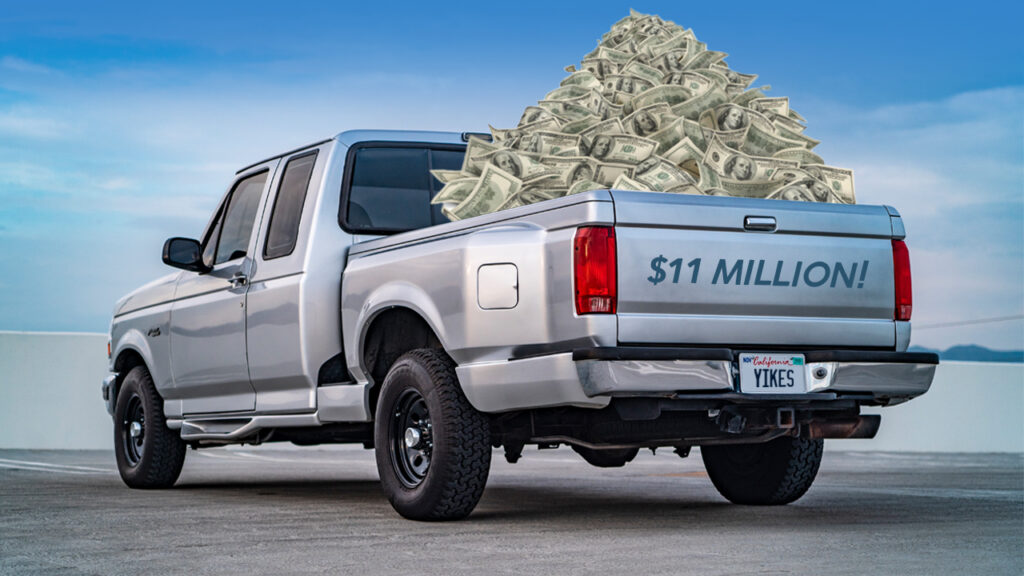
For most Americans, the cost of cars is a given. Because of the sprawling manner in which our cities were built post WW2, nearly every task—getting to work, finding food, taking kids to school—usually require a car. With that come a multitude of costs, some obvious, some hidden.
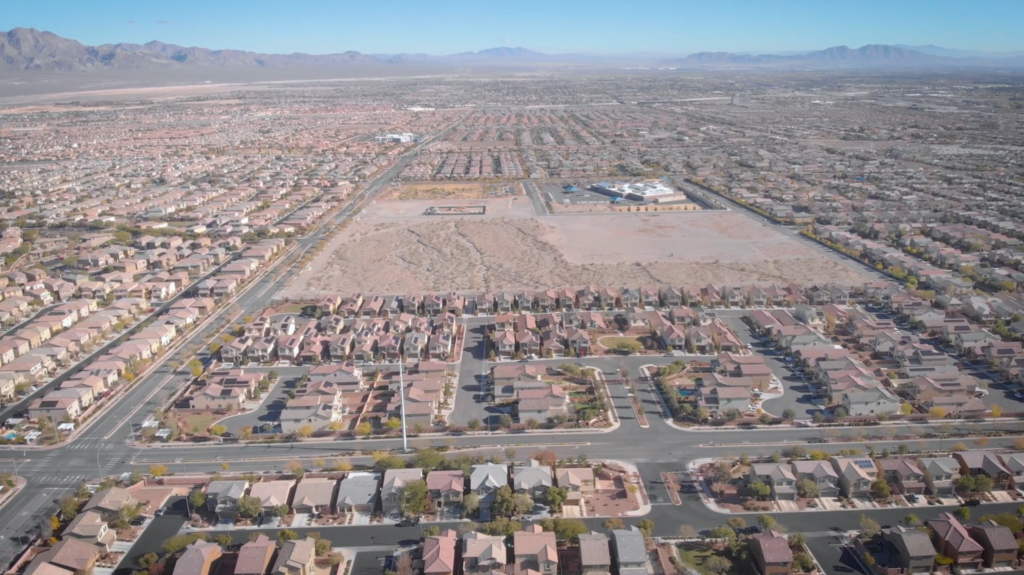
A decade ago the average cost for a new car in the US was about $30k, today it’s over $48k. With good credit you could end up paying $65k for that “$48k” car, $13k in interest. If you have bad credit, that same loan could cost you $88k! $36k of that being interest.
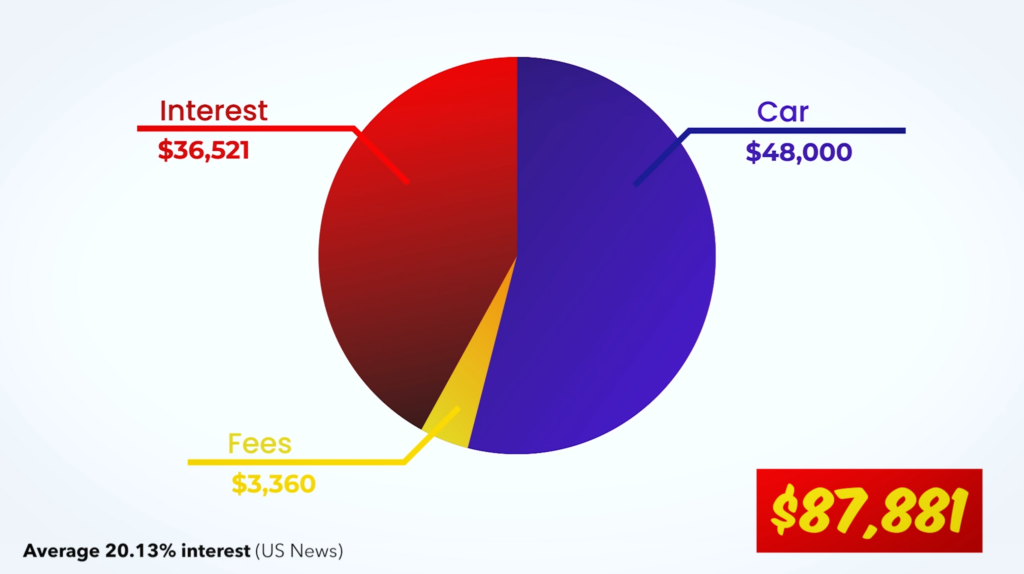
Average US car payments are up to $712/month. Which seems, not great. Most people will be paying that amount for nearly 6 years, and make the last payment when their car has almost 90k on the clock.
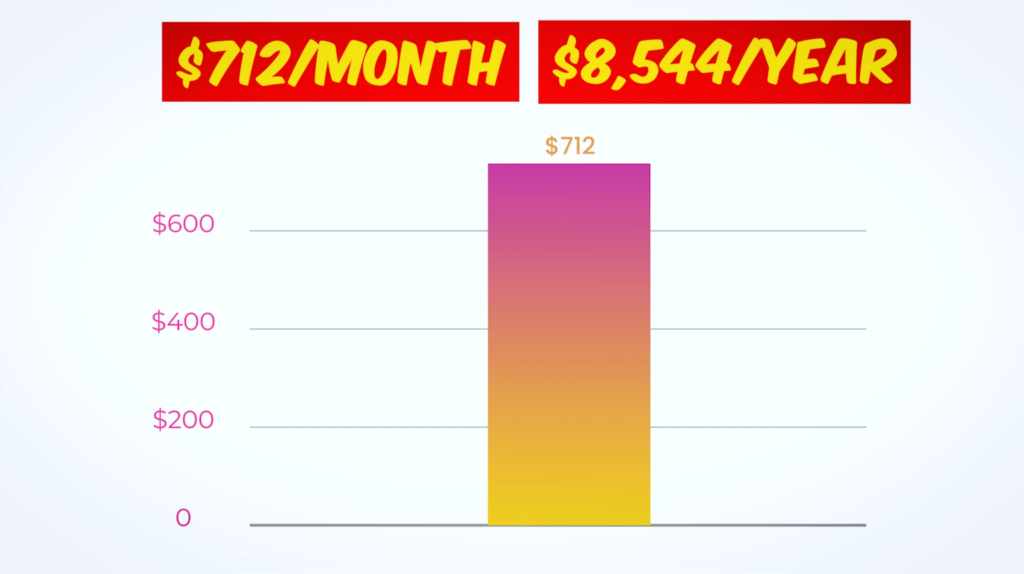
8 million Americans with a car loan or lease were 90+ days late on their payments. Nearly half of all auto loans are underwater—meaning people owe more on the car than it is worth. $3700 on average.

Bankrate estimates yearly auto insurance costs are up to $1771. More if you’re particularly “crashy”. AAA says maintenance now averages $1275/year, and fuel is up to $2624/year. Much more if you own a gas guzzling Suburban, much less if you own a Prius Prime.
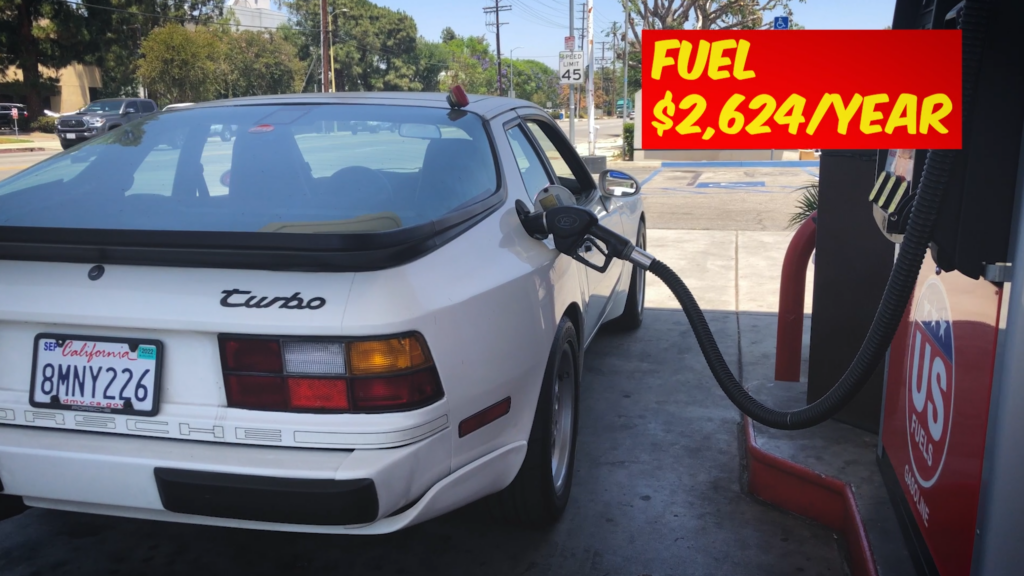
There are other costs like speeding tickets, roadside assistance, and car customizations—like installing an angry Jeep face on your Wrangler. Half of all new cars sold in the US are customized within 2 years of ownership, raking in $18B in sales. Mostly angry Jeep faces, I think.

So where are we at for the yearly cost of car ownership? Car payment, insurance, repairs, and fuel brings us up to $14214 per year for just 1 vehicle. The average American household has 2 vehicles, so you might as well go ahead and double many of these costs. 🥴
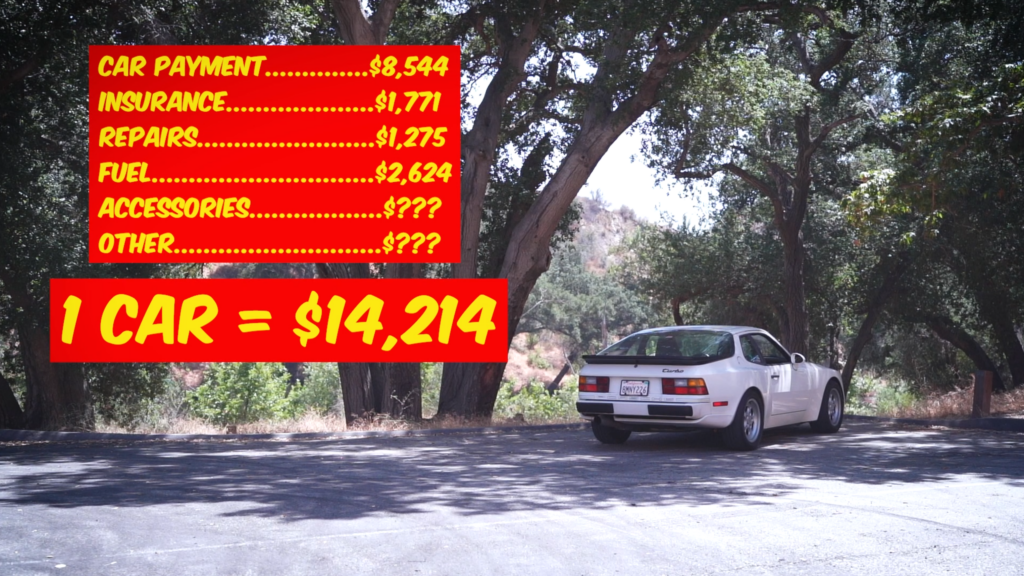
What about costs that are subsidized through our taxes? Maintaining roads and bridges, health costs for crashes and air pollution, and providing “free” parking. A German study calculated that these “socialist” car subsidies can amount to $246k over your lifetime. Almost $5k/year!
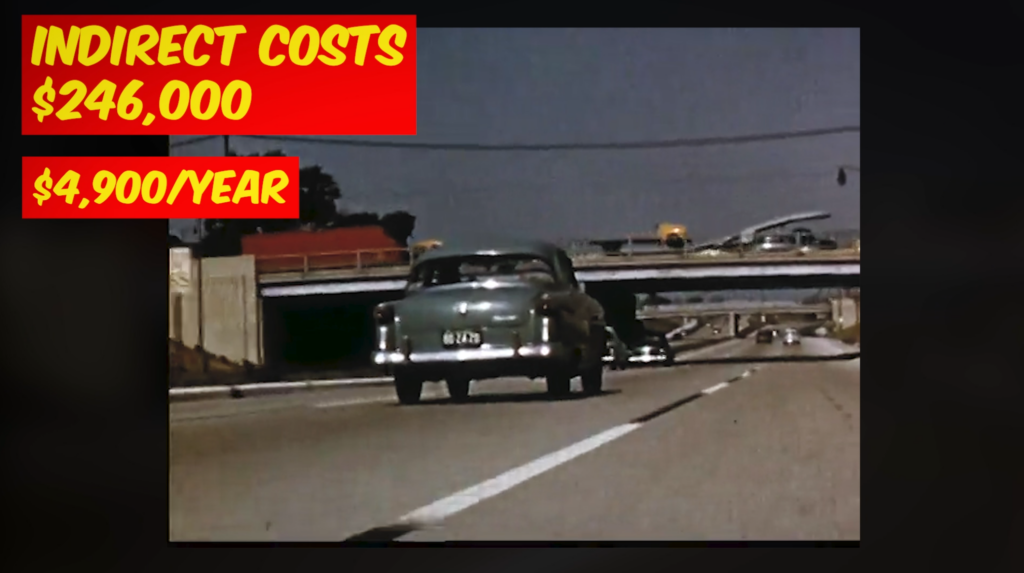
In many US cities and towns, the cost of parking is heavily subsidized. For example, the city of Madison, Wisconsin pays $240/mo in debt service per parking space in just one of their parking garages because they don’t charge enough for parking.
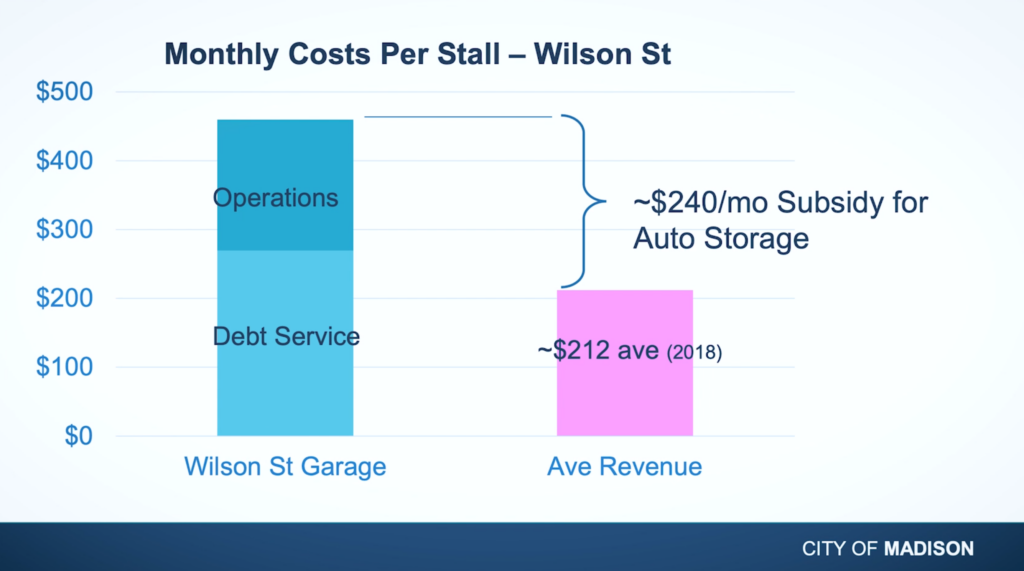
Parking takes up 1/3 of all land area in US cities. The US has 2 billion parking spots for 250 million cars. While you may not directly pay for a parking spot, you can be assured that those costs are being passed on to you—hidden in your taxes or in the cost of goods you buy.

If you live in an apartment with “free” parking, yeah, well, it’s not actually free. Renters pay the cost of building and maintaining parking spaces—it’s simply factored into your rent. Garage parking costs renters about $1700/yr, an additional 17% of a housing unit’s rent.
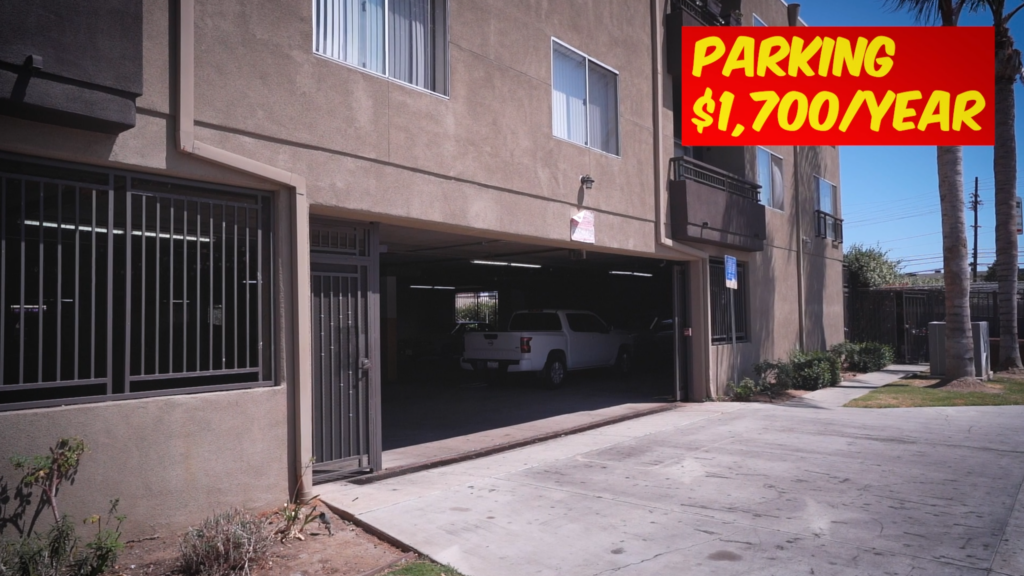
Transportation costs account for 16% of the average American’s yearly expenses. For low income households, it can be as much as 29%. A considerable amount of money devoted to an item that spends 96% of its time parked. And we spend more on transportation than we do on food!
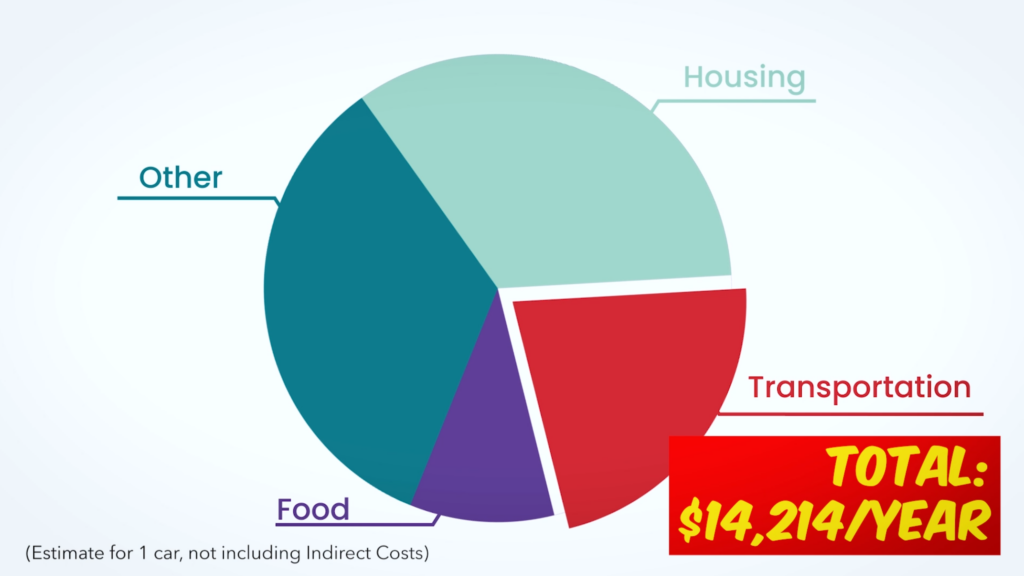
You might be saying, “I’m not poor! I can afford the payment on my lifted Ram 3500!” Good for you! But there’s one more thing we should consider. The lifetime cost of car ownership, and the opportunity cost of owning and operating cars throughout our lives. ⬇️
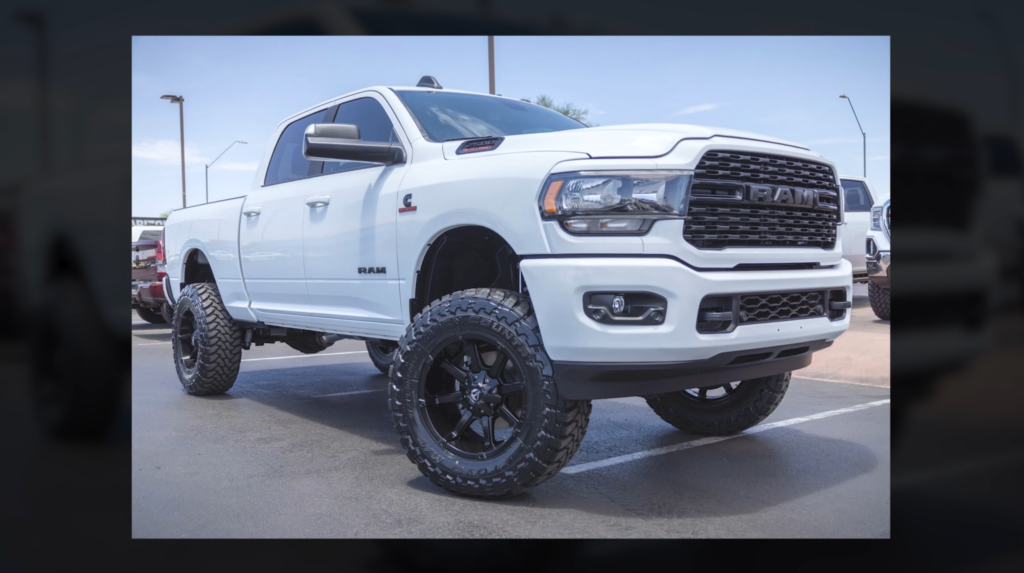
If you take AAA’s car ownership expense estimate of $10728/yr and multiply it times 50 (kinda low estimate for number of years an American will drive)—you will have spent $536,400 for the privilege of owning and operating cars throughout your lifetime.
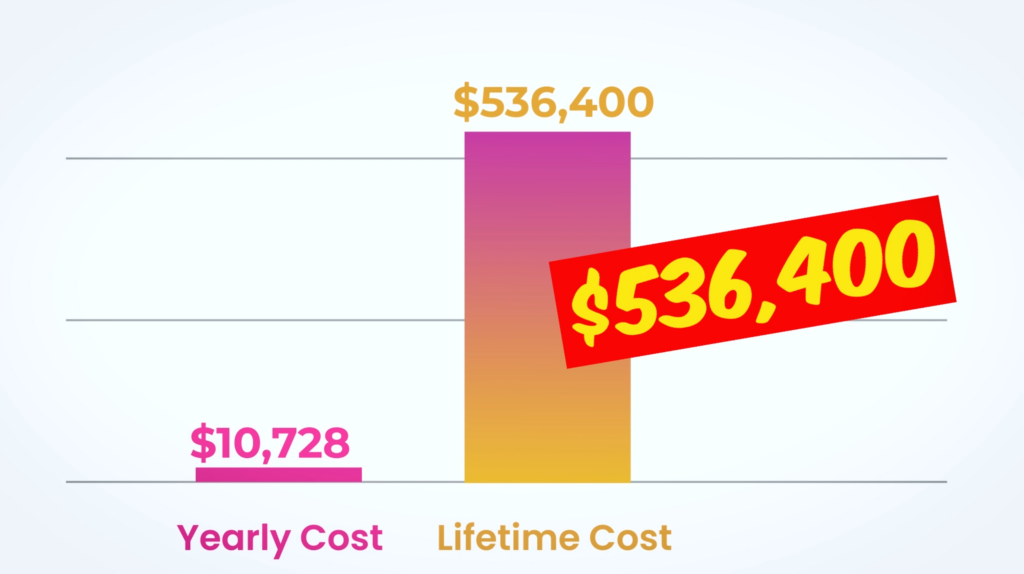
I’ve calculated that AAA’s car ownership estimates are a bit low—they are an organization that exists to promote driving, after all. If you go with my estimate of $14214/yr and you’re at a staggering $710,700 for a lifetime of owning and operating cars throughout your life.
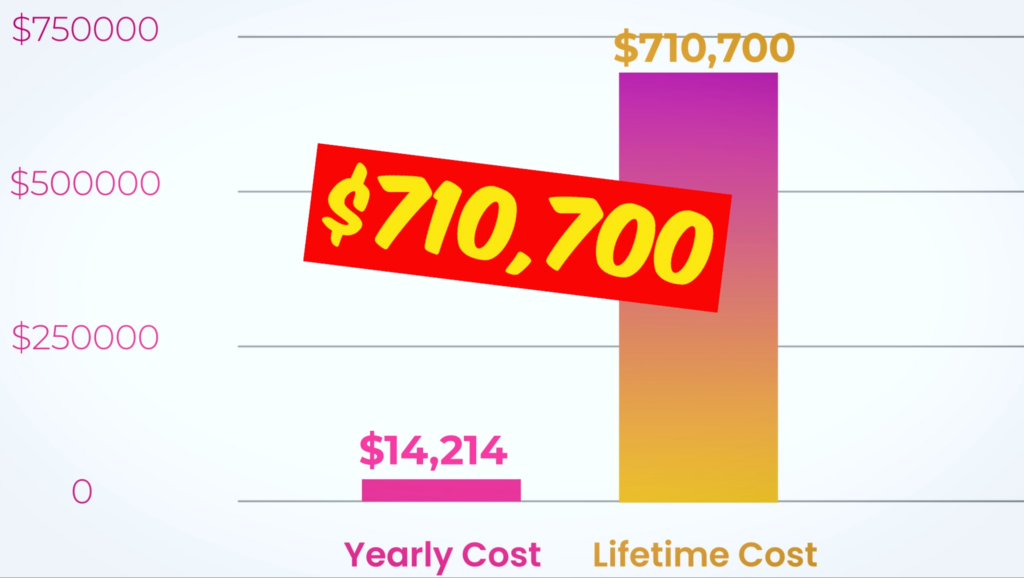
But wait, we forgot to include those indirect/hidden “socialist” car related subsidies like maintaining roads, providing subsidized parking, and health costs for crashes and pollution! Factor those in and we’re at $956,300 for a lifetime of vehicle operation and ownership.
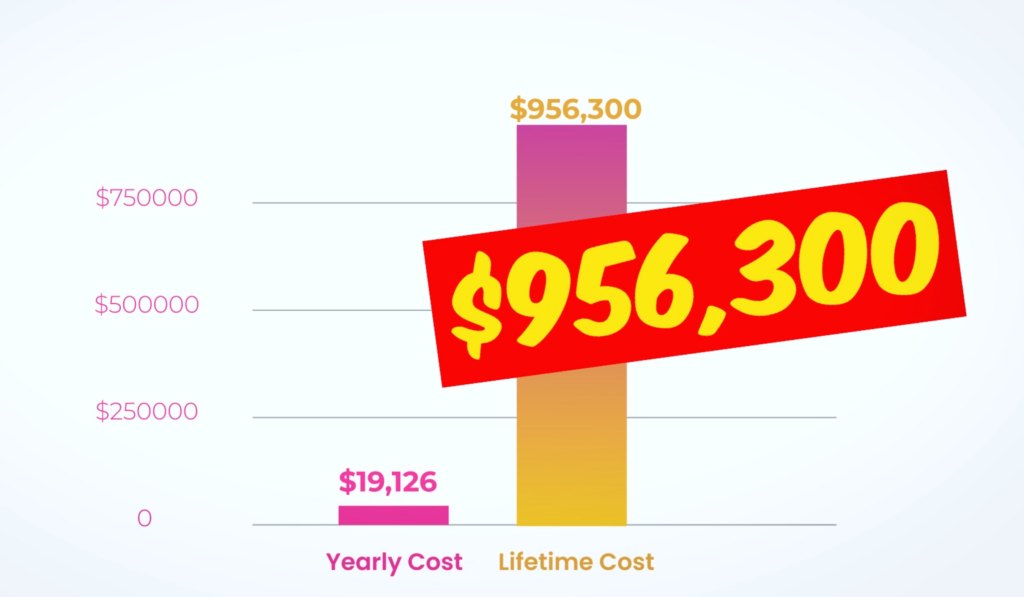
Ok, so a lifetime of car ownership is expensive. But what about the opportunity cost? Let’s say that instead of owning and operating cars, we invest this money in the stock market. After 50 years, at an 8.7% historical rate of return, you’d have $11,236,907 in your bank account.
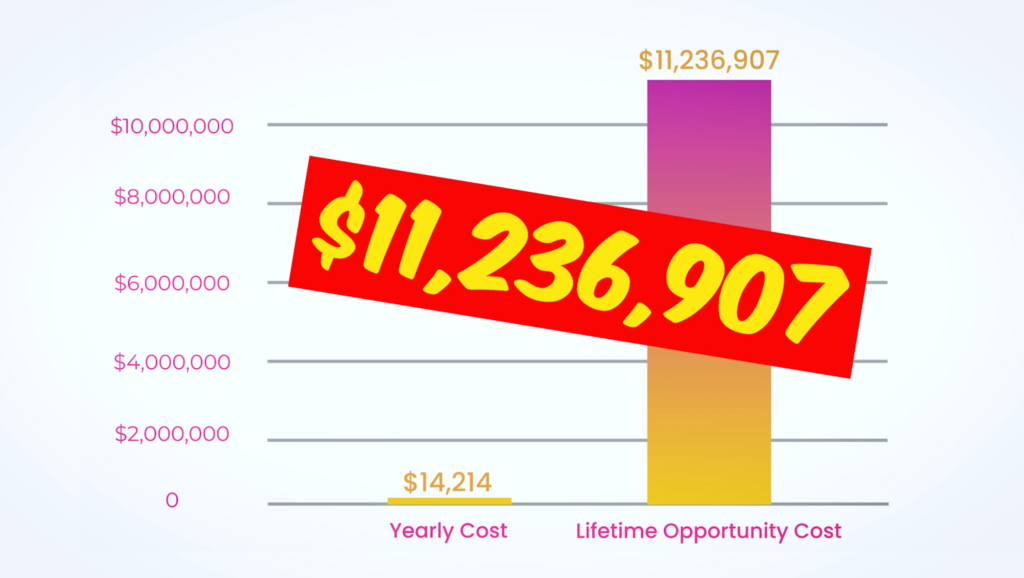
So there you have it. Throughout your life as an American car owner, you may have shoveled over $11 million into the pockets of the car industry.

And that’s just the financial part of the equation. Americans also spend 97 hours a year stuck in traffic. We spend 9 full days per year commuting. And the US is an outlier when it comes to deaths by automobile—43k were killed because of cars in 2021.
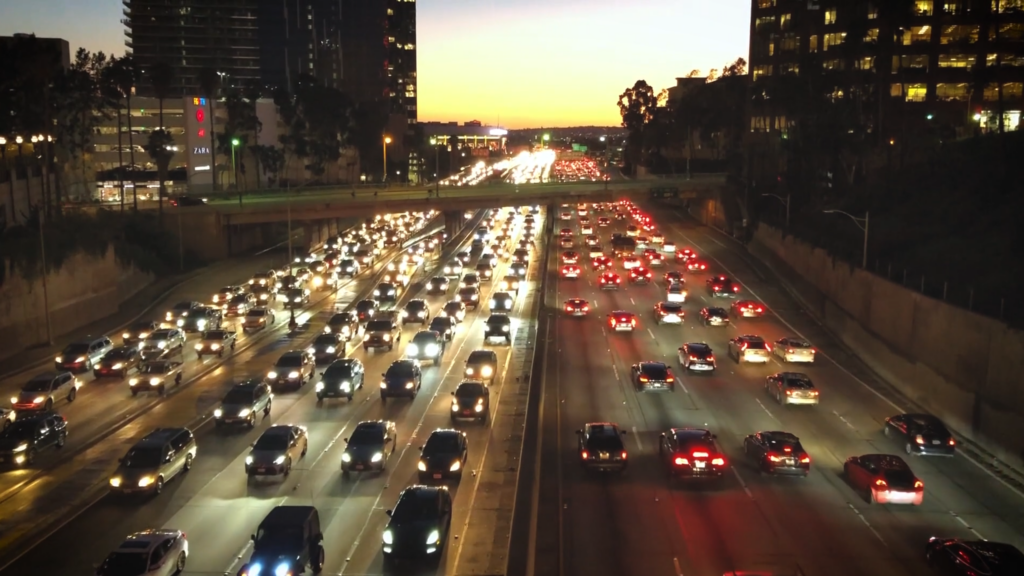
This isn’t a thread to make you feel bad about owning and driving a car. The way modern US infrastructure is designed generally necessitates car ownership. But this is a thread to encourage us to consider the true costs of car dependency.
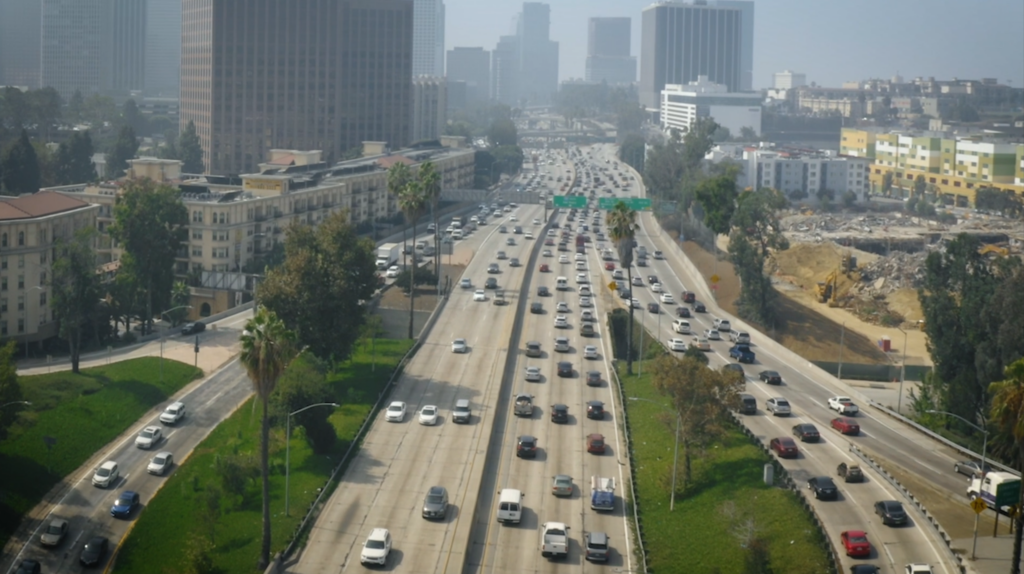
How much richer would we be if cities/towns were designed so that driving could be optional, and other forms of mobility were safe/convenient? If we stopped subsidizing car parking? If zoning laws were changed to again allow the development of mixed-use, walkable neighborhoods?

Can we get that $11 million back? Driving an efficient car can help, but the only way to make a dent is to drive less. Can you work from home? Carpool? Ride an e-bike or take the bus for short trips? Most car trips are 3 miles or less. And a bus is stupid cheap compared to a car.
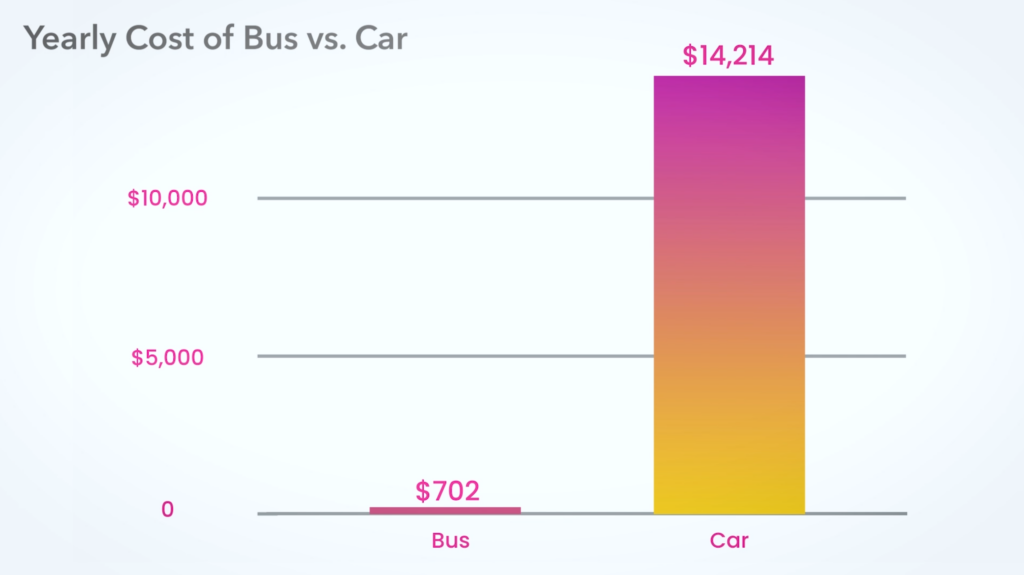
Of course, public transit and bike/pedestrian infrastructure is often terrible in many US cities/towns. Driving less would not be easy. But it’s clear that investing in other forms of mobility, and advocating for their improvement could end up saving us all a sh*t ton of money.

For a more in-depth look at the true cost of car ownership, watch the full video:
Sources:

It’s time for a Civic Si showdown! Let’s take a close look at every single Honda Civic Si generation ever made, and

I’ve got the key to the new Subaru WRX tS, the top-spec WRX you can buy—and I’m driving this “almost STI” for

I recently imported a 1997 Toyota Caldina GT-T—a turbocharged, 256 horsepower, all-wheel-drive station wagon! BWhen you import a vehicle from Japan, it